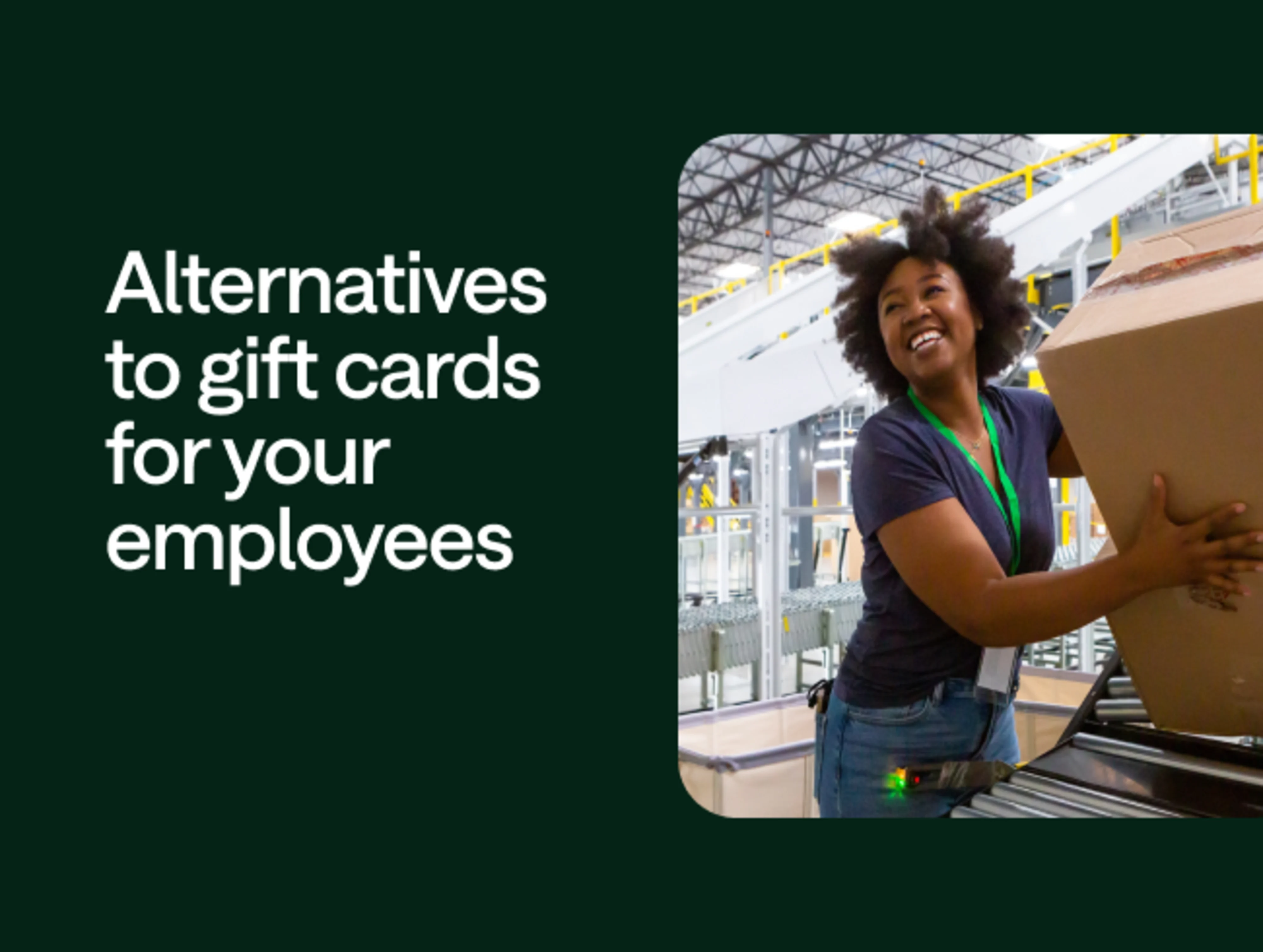Many companies today offer some type of employee rewards program. Often, the rewards handed out are gift cards. They are easy to obtain, can be ordered online, and sent directly to employee email addresses. What could be simpler?
The problem is that many employees don’t want the typical Amazon gift card reward. That doesn’t mean there aren’t any employees who wish to receive gift cards, but employees want a choice in the rewards they receive.

Alternatives to gift cards: Rewards employees really want
So, what do employees want when it comes to rewards for a job well done or significant milestones? Let’s take a look at seven of them.
Employees would like flexible work arrangements that provide autonomy in when and where they work, especially if they are caregivers or parents. Of course, some jobs don’t lend themselves to this type of work arrangement due to the nature of the role. However, flexible work arrangements provide better work-life balance and help employees manage their personal obligations more efficiently and effectively. McKinsey states, “The desire for more flexibility is the most common reason U.S. frontline retail employees leave their jobs.”
Personal development and opportunities to grow, because no employee wants to feel that they’ll be stuck in the same job forever. Allowing employees to take a LinkedIn or Hubspot course on company time would help them gain valuable new skills and demonstrate your faith in them to handle a new job role or more responsibilities. The extra money they could earn with upgraded skills is worth more than a $100.00 gift card.
These types of opportunities also benefit both parties. Expanding workers’ skillsets and knowledge makes them more valuable to your organization and prepares them for additional job duties or promotions.All employees appreciate extra time off, whether it's a full day in the summer months or a half day with a spa visit. Because work-life balance is an employee's top priority, extra time off, especially if it gives employees a three-day weekend, helps their mental health.
Personalized rewards, particularly experiential ones, can significantly enhance employee motivation and satisfaction. Tailoring rewards to individual interests demonstrates genuine appreciation and fosters a deeper connection between employees and your organization. These might include weekend getaways, VIP tickets to special events like concerts or sporting events, or a wellness weekend promoting rest and relaxation. Employees might also like to have a special one-on-one time with their boss, for example, lunch or dinner.
Workplace burnout is relatively common in stressful work environments, so wellness initiatives, such as mental health resources and gym memberships, are in high demand. Additionally, rewards can improve employee health and result in positive outcomes for employees and your organization.
No employee likes to be micromanaged or to have a manager standing over them, watching their every move, so greater autonomy is a reward that helps employees feel that you trust them. To enhance motivation and job satisfaction, reward employees with greater independence. WSI states that even though autonomy doesn’t sound like a reward, “showing your employees you trust them to handle more important tasks in their workload can give them a sense of connection with the team and purpose in their job.”
What employee doesn’t appreciate public recognition via a heartfelt shoutout in a team meeting or on social media? Tagging employees on Instagram or LinkedIn and explaining why they are valuable contributors to your organization shows them some valuable love and ensures they will go above and beyond going forward. Even impromptu, frequent recognition makes employees feel special and creates a more engaged and positive workplace.
If you want to find out what resonates with your employees, offer them a survey before you decide on a rewards program. Chime offers a loyalty and rewards platform called Salt that rewards employees simply for working. Employees can redeem their Salt for any number of carefully selected rewards that meet their needs.
Why personalized rewards are better than standard gift cards
While many companies offer gift cards because they are quick and easy rewards, customized, meaningful rewards lead to higher employee satisfaction, retention, and productivity. Gift cards are merely transactional, but experiential or customized rewards, like pro sports or show tickets, create lasting memories that employees can tie back to their company!
Personalized rewards also result in higher engagement and productivity. Employees tend to work harder when employers show they value their reward preferences. When employee rewards feel personal, employees see that their company is invested in their happiness. While gift cards are impersonal, providing more personalized rewards shows appreciation and a keen understanding of individual preferences.
To learn more about how Salt can significantly reduce turnover with a personalized rewards platform, download the white paper “Unlocking Employee Retention — Reducing Turnover With Salt Rewards Platform.” Download it here.



